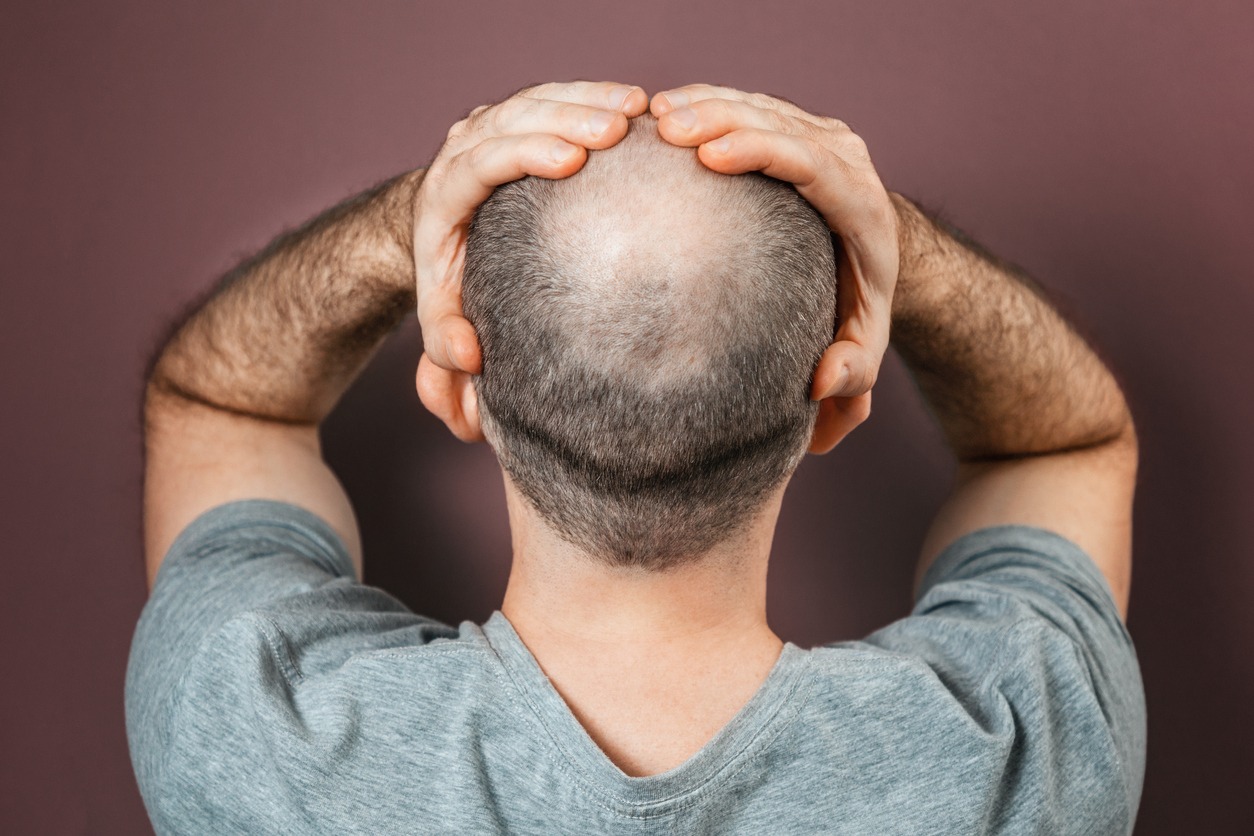Hormones are chemical messengers that are secreted by glands in the body and travel through the bloodstream to cells found on target organs. Once at the cells, the hormone triggers some type of activity in the cell. Hormones are crucial for our survival, influencing many aspects of growth, metabolism, development and reproduction. They also influence our skin and hair and in fact, many people start to lose head hair because of the effect of hormones.
Both men and women have the same reproductive hormones, but in different concentrations. This means that men have a higher amount of testosterone than estrogen while with women the opposite is true.
The testosterone of men is responsible for masculine traits like facial hair, development of more body hair, development and maturation of the tests and also development of bigger muscles. An additional androgen hormone that is produced from testosterone is dihydrotestosterone, which is often called DHT. A specific enzyme named 5-α reductase actually transforms testosterone into DHT. DHT is an important hormone in that it helps the development of the prostate, which is an important part of the male reproductive system. Unfortunately, DHT can have a bad impact on the head hair even though it causes general body hair development.
DHT, hair and androgenetic alopecia
Androgenetic alopecia is a common cause of hair loss in men and it is an inherited condition. In fact, it this condition is so common that almost all men show some level of alopecia after the age of 50.
DHT impacts head hair adversely because it causes miniaturization of the follicles. What this means is that the hair follicles retreat into the dermis. The end result is that fewer hairs are formed from the individual hair follicles. The impact of DHT is greater in certain areas of the head than others; in fact, the balding happens in a particular pattern, which hair transplant experts have recognized. This has led to development of the Norwood scale of hair loss in which a man’s degree of balding is determined and can be used to plan treatment. This distinctive pattern also means that doctors know where the best donor hair is; this is the hair that is not susceptible to the effects of DHT.
Hair transplant options for androgenetic alopecia
Androgenetic alopecia is progressive and so it is smart to look for treatment options sooner than later. Men all around the world are opting for hair transplants. In the past, such transplants included the FUT, but newer and better techniques such as the FUE have now been developed. The FUE is a superior method because scarring is minimal and there is a lower risk of infection due to the very small size of incisions.
While many men may need and want a hair transplant, it can be expensive, especially in certain parts of the world. For instance, a hair transplant UK cost is very high. This is why so many men from the UK have chosen to become medical tourists and travel to countries such as Turkey to get their hair transplant.

